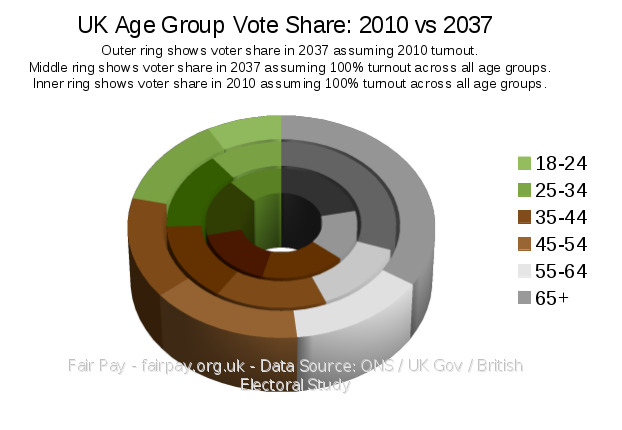Office for Budget Reponsibility Report: Don't Panic, Unless You Have a Public Sector Pension

Considering the stern warnings and stoic wartime attitude of David Cameron in the lead-up to the budget, the OBR's report is surprising upbeat, though it's peppered with caveats with regards to unknowns.
The current financial state and immediate projections in the report describe an economy that has already hit the bottom, and now the only way is up.
Interest rates and inflation are predicted to remain similar to now. House prices are expected to rise slightly. Exports are expected to pick up, and overtake imports in the near future. Businesses are thought to have to stopped running down their inventories and will now be re-stocking in anticipation of better times ahead, adding to Gross Domestic Product (GDP).
The fall in the value of the pound versus an improving world economy is predicted to help our country's exports and economic growth.
The report notes that consumer spending has dropped and savings have increased, and it predicts that consumers will continue to be cautious for a while, but maybe spending will increase somewhat, adding to the economy. Business profits are increasing while the UK's share of the global market is not. The report suggests that in the near future, businesses may reduce their profit margins in favour of capturing larger markets and increasing volume of trade. The report mentions how in the 1980's recession, as the economy recovered, wages began to rise, helping to fuel inflation. The report doesn't think that will happen this time around. Unemployment is predicted to fall quite sharply over the coming years. Oil prices are predicted to fall. Government income is predicted to fall slightly next year, then recover and grow.
The report continues in this vein. You don't have to dig into the figures to see that this is quite an optimistic report, though some of that optimism is based on signs of improvement that have already been recorded from late 2009 onwards.
As the late 2000's/early 2010's increasingly resemble the late 1970's/early 1980's, the OBR are more or less predicting a repeat of history - except in certain areas.
They don't think inflation and wages will rise much. Perhaps the unions are weaker today than they were in the 70's/80's - this might contribute to holding wages down, but they may not be as weak as they might seem. Either way, a sufficiently strong economic pick-up will cause a net reduction in the labour supply and almost certainly force up wages through basic supply-and-demand capitalist mechanisms. This tendency will be countered to some extent by redundancies and pay freezes in the public sector.
Contrary to the trend in the mid-eighties, house prices are predicted to rise, against a backdrop of low inflation. While house prices have been depressed for a while, they haven't seen the fall that might have been expected. If they continue to grow, and inflation doesn't rise (inflation in areas other than housing would help to bring house prices down in relative terms), then does this mean the UK will now have to adapt to a brave new age where average house prices are never less than 6 times the average salary? This in turn could mean a growing section of the populace who would never be able to own a house. Is that healthy from an economic or social point of view? I suspect not. Sadly, falling house prices may cause hardship for some house owners, particularly those who bought homes in the last few years.
The report's section on public sector pensions is interesting. It goes into some detail describing the operations of public sector pensions, and says that more information will be sought. Since then, Nick Clegg has been quoted in the press as describing public sector pensions as "unfair" and "not affordable".
The OBR report makes a distinction between the Local Government Pension Scheme and other public sector pensions. The suggestion seems to be that it is the latter that risk changes in the forthcoming budget, as their pensions are paid directly from government funds while the LGPS maintains separate pots of money accumulated from previous contributions. It particularly mentions workers in the NHS, teachers, civil service, armed forces, police, firefighters, judiciary and the UK Atomic Energy Authority.
Links
Office for Budget Responsibilities' Pre-Budget forecast June 2010 [Full report - PDF]The EconomicsHelp Blog - A good resource for learning about economics
Nick Clegg has criticised "unreformed gold plated" public sector pensions, as new figures show spending on them will more than double by 2014/15 - Report from the BBC, 15.06.2010.
The BBC's Stephanie Flanders' economics blog




